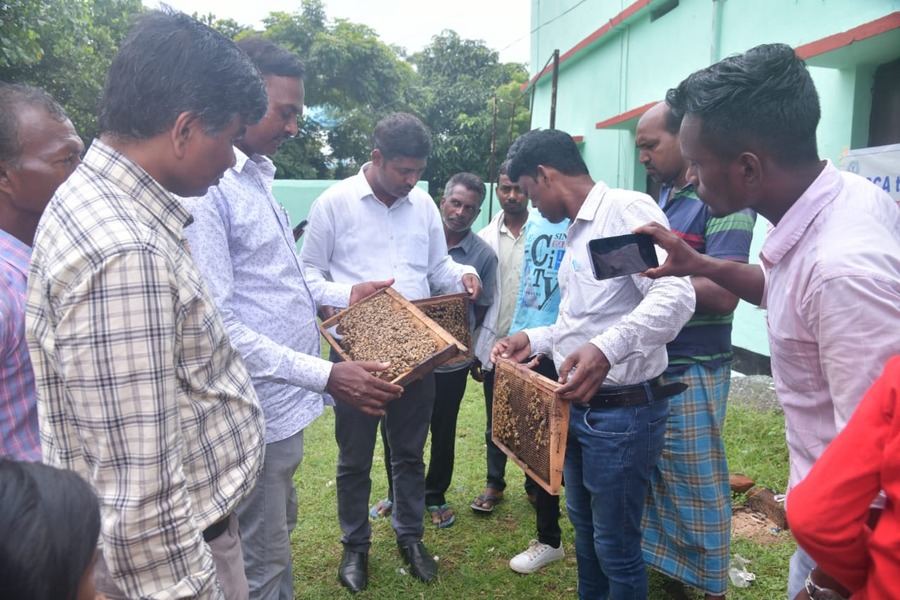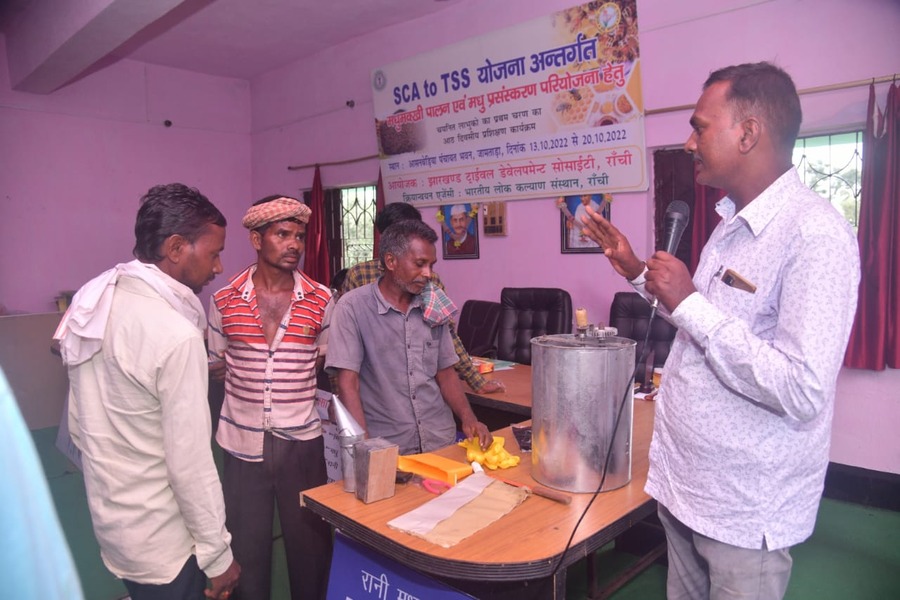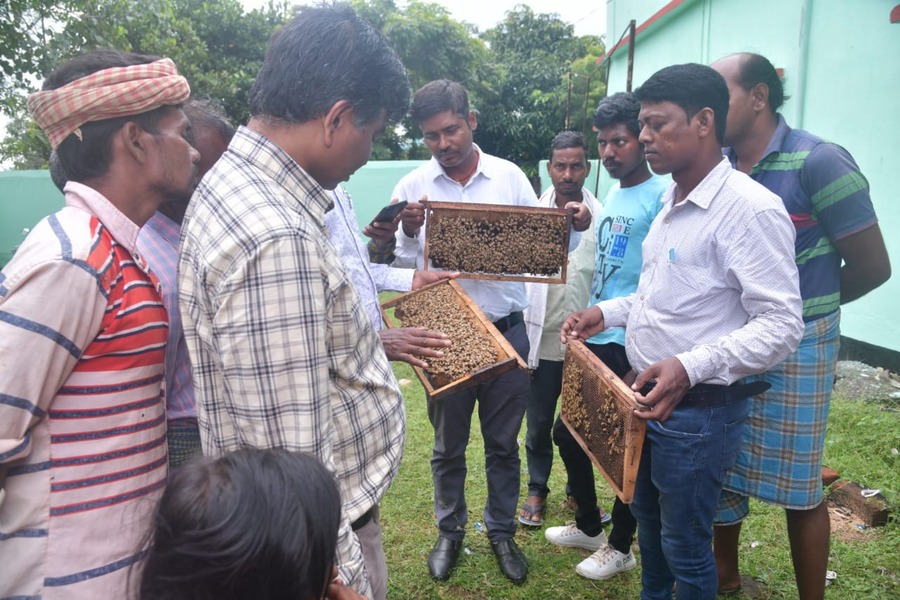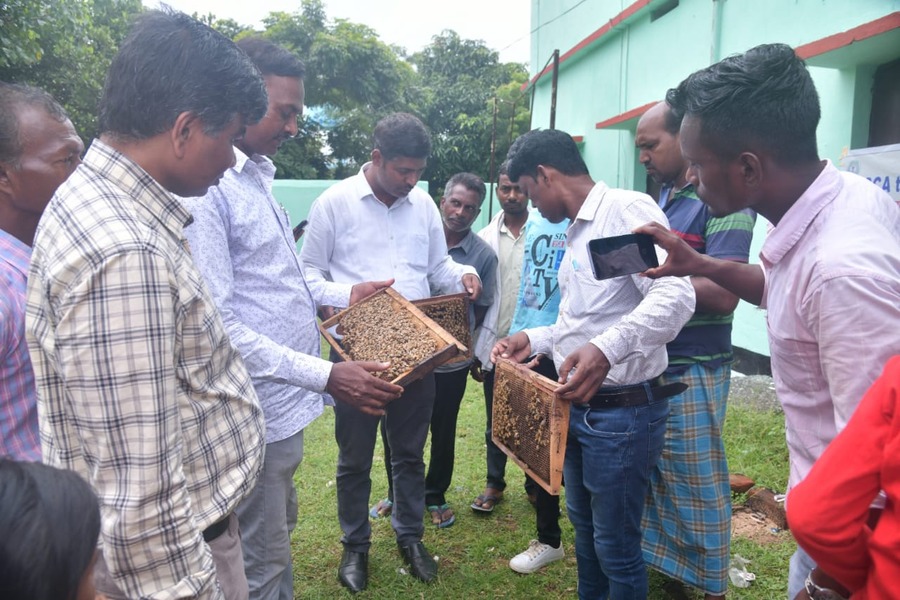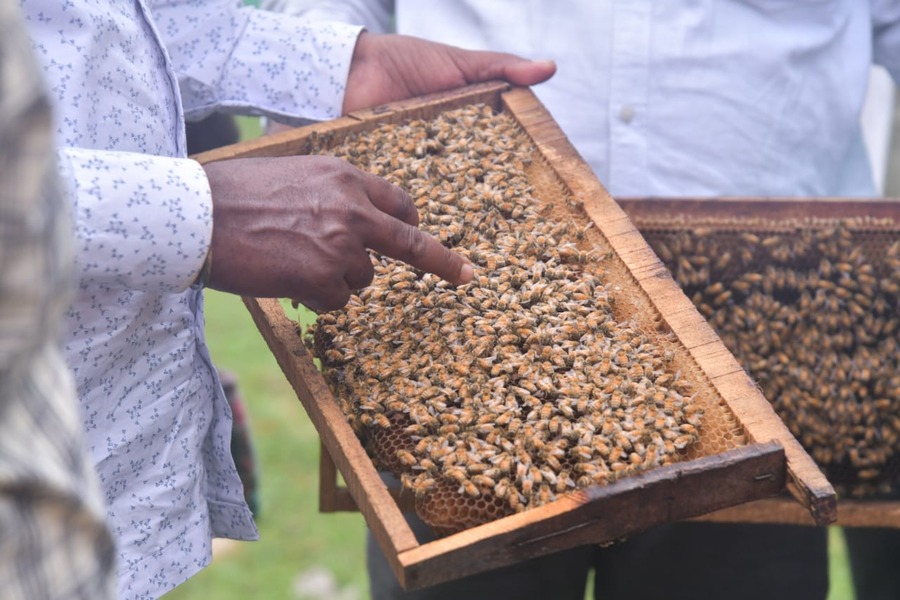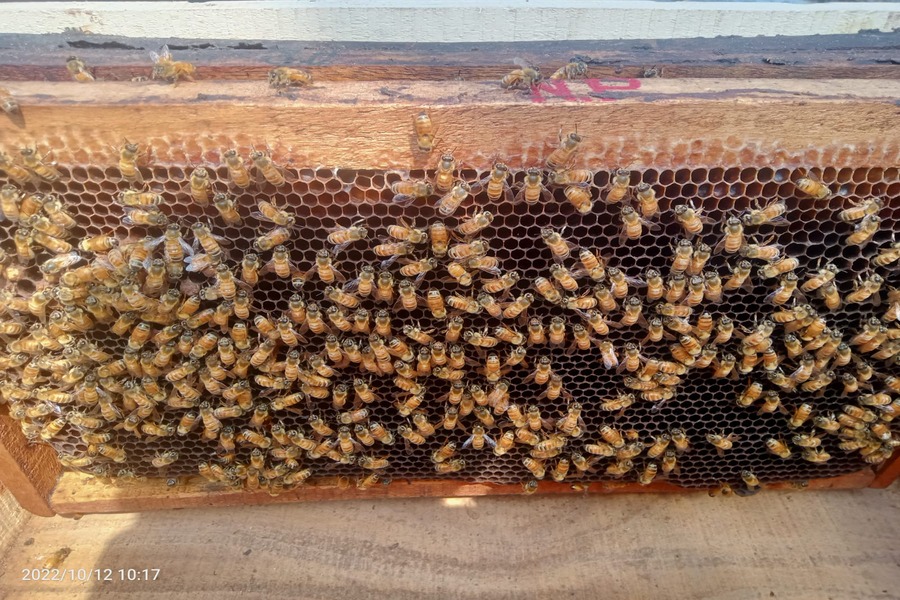Bee Keeping(Apiculture)
Apiculture…….
Apiculture or beekeeping is a kind of occupation that involves nurturing and looking after bees for the purpose of acquiring bee products like beeswax, honey, royal jelly, flower pollen, and bee pollen. Apiculture in general implies the maintenance of bees belonging to the genus APIs than are honeybees. However, in apiculture, even bees that are not likely to sting are kept for preservation. For example, stingless bees like Melipona are nurtured for honey in the bee colonies maintained by humans. The person who has been given the responsibility to collect honey from bees is called an apiarist or a beekeeper. Their primary duties are to collect flower pollen, bee pollen, honey, and beeswax for the purpose of fertilizing crops and to breed bees in order to sell them to other apiarists. An added interesting fact about apiculture is that the location where bees are kept for livelihood is called a bee yard or an apiary. Products obtained in apiculture the role of bee products is immense in our daily lives as most of the products that we depend on, like honey and wax, are derived from bees. Bee products are instrumental in supplying human beings with the necessary nutrition and sustaining their daily diet. Moreover, their role in generating an income and a source of livelihood for human beings is a fact that cannot be ignored. In this manner, it can be said that bees provide a lot of ecological services to human beings. So it can be safely assumed that if there were no bees, the environment along with its humans would simply fall apart. The paramount products that come from bees are honey and wax. But bees are also known to produce other useful materials like flower pollen, bee pollen, and royal jelly. In many ways, bee products are greatly useful because they can be used in combination with other materials, which in turn increases their credibility as products. The quality of bee products gets enhanced when they come into conjunction with other products and thus that increases their marketing value.
There are several challenges that are associated with the prospect of apiculture that can affect the health and durability of the colony. The main problems associated with apiculture are the loss of habitat, agrochemicals, pathogens, and most importantly, climate change. Also, there are several other problems related to cheap marketing that lead to alternatives to bee products. There is also a lack of awareness of policies and knowledge related to the practice of beekeeping which is one of the chief impediments of apiculture.
Importance of Beekeeping
An interesting fact about apiculture and beekeeping is that the products derived from bees’ pollination form an integral part of the food that we eat every day.
For the purpose of beverage brewing and sporadically serving on special occasions, honey is one of the most preferred products. In some cultural ceremonies, honey is often served as a special product to guests for showing them high regard and making them feel important. In ancient Egypt, honey was used as a beauty product as well as a medicinal supplement. In particular African cultures, honey is often provided as a source of dowry.
Honey is highly regarded as a wholesome and delectable food product. It can be either consumed as a whole or used as a supplement with other products. Bee brood is an important bee product that works as an important source of food for impoverished children. On the other hand, other bee products like royal jelly and pollen are highly preferred for their rich protein value.




